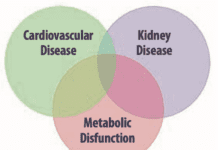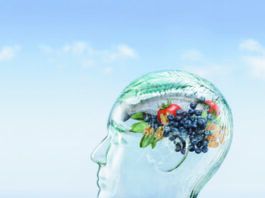Carbs Crucial to Early Humans Brains
Adherents of the so-called "Paleo diet," which emphasizes meat and attempts to replicate what humans ate in the Paleolithic period, may want to set down their steaks long enough to say thanks for starchy carbs.
New Dietary Approach Against Alzheimers
While both a Mediterranean-style diet and the DASH eating plan are associated with brain benefits, a hybrid dietary pattern that combines the best of both with the latest cognitive research may protect memory and thinking even better. A new study reports that the MIND (Mediterranean-DASH Intervention for Neurodegenerative Delay) diet was associated with a slower rate of cognitive decline-equivalent to 7.5 years of younger age. Those with the highest MIND diet scores were 53% less likely to develop Alzheimers disease than those with the lowest scores.
New Evidence of Brain Benefits from Following a Mediterranean-Style Diet
A newly published followup to findings from a study of the so-called Mediterranean diet adds to the evidence that such an eating pattern, especially when it includes nuts and olive oil, may help protect the aging brain. Results from a subgroup of the Spanish PREDIMED study showed that those assigned to a Mediterranean diet held steady in cognition while a control group declined. While previous observational studies have linked a traditional Mediterranean-style dietary pattern to cognitive protection, this is the first such evidence from a large randomized clinical trial.
Are You Keeping Your Brain in Shape?
Physical activity helps preserve mobility and motor skills as you age-and not just by keeping your muscles in shape. A new study suggests that activity also maintains mobility by protecting your brain. Even in people with signs of brain aging called white matter hyperintensities (WMH) associated with movement issues, being more active seemed to allow the brain to compensate.
What Can Yogurt Do for You?
Americans consume more than $7 billion a year worth of yogurt, with hundreds of new yogurt products introduced annually. In survey after survey, consumers say the healthfulness of yogurt is top among the reasons they eat it.
Putting B Vitamins for Brain Protection to the Test
Could extra B vitamins reduce your risk of cognitive decline and dementia by lowering blood levels of an amino acid called homocysteine? That tantalizing promise was put to the test in two recent large-scale studies, and in both cases researchers proclaimed the results disappointing. But other experts say the jury is still out, particularly for people with low B-vitamin status or those who are already experiencing cognitive decline.
Get Fit Now to Keep Your Brain Sharp Later
A new study reports that the more physically fit you are when youre younger, the more likely you are to keep your brain sharp as you get older. But theres also good news for those who slacked off in their youth: Even starting to get more fit now might still improve your cognitive health.
Low Vitamin D Levels Linked to Greater Risk of Dementia
Could the "sunshine vitamin," known to be crucial to bone health, also help protect the aging brain against dementia and Alzheimer's disease? It's possible, says Robin B. Kanarek, PhD, Tufts professor of psychology. "There is mounting evidence demonstrating that vitamin D is critical for the normal functioning of the nervous system," she explains, "and that vitamin D deficiency may contribute to age-related decrements in cognitive behavior."
Q. I read about a study that found individuals with a high intake of...
Q. I read about a study that found individuals with a high intake of vitamin E had a lower risk of developing Alzheimers disease. I have been taking 1,000 IU daily. Now I read in your newsletter (June 2014) that men taking vitamin E supplements were more likely to get prostate cancer. What should I do?
Aerobic Activity Helps Build Bigger Brains
Another study has shown that aerobic activity, such as brisk walking, boosts your brain-actually increasing the size of the hippocampus, a key part of the inner brain involved in forming, storing and processing memory. When compared to an earlier study of cognitively healthy older adults, moreover, the findings suggest that aerobic exercise offers greatest benefits to those who need it most: people with mild cognitive impairment (MCI), often a precursor to Alzheimers disease.




































